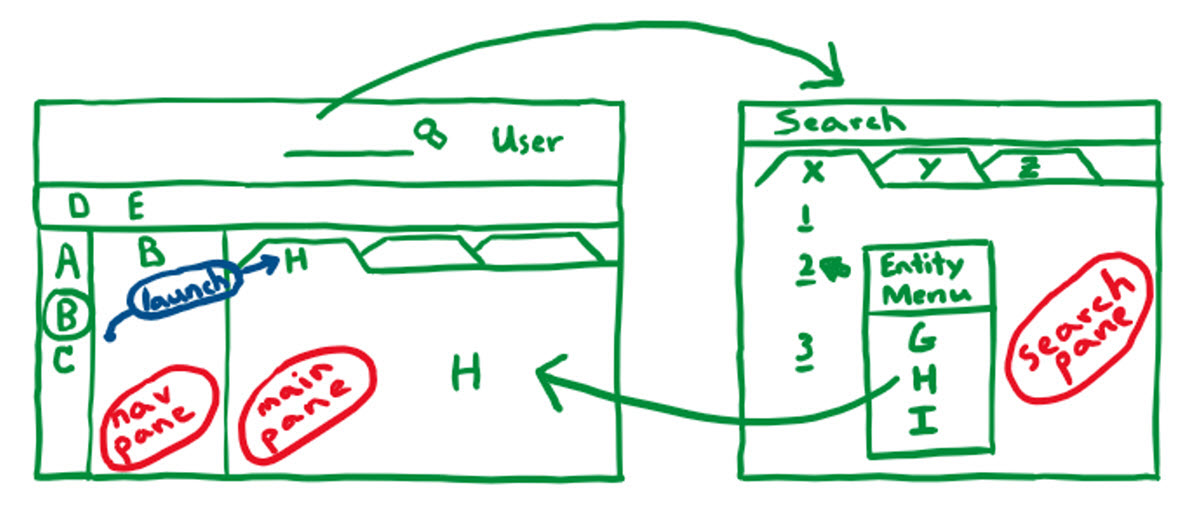Welcome to the Porrtal project !!
This project was created to help developers. You can use the platform to build web applications. The project supports both React and Angular development. You can also use the Porrtal code as a reference showing how to use React, BlueprintJS, Material (MUI), Angular, and Angular Material.
The quick starts listed here are designed to get you up and running quickly.
| React Quick Start - BlueprintJS | |
|---|---|
| React Quick Start - Material (MUI) | |
| Angular Quick Start - Material |
The Porrtal project website can be found here: porrtal.io (coming soon...)
You can follow these steps to run the Porrtal website locally:
# clone the repo
git clone https://github.com/Comcast/Porrtal/porrtal.git
# switch to the folder
cd Porrtal
# install npm packages
npm install --legacy-peer-deps
# serve the app
nx serve n-porrtal-io-appOnce the above command completes, you can run the website locally in your browser http://localhost:4200
Porrtal NPM Packages can be found here: www.npmjs.com/search?q=@porrtal
@porrtal is a set of npm packages that can be used to rapidly construct spatial / analytics systems for power users.
(@porrtal provides npm packages for both Angular and React development)
The goal of the Porrtal project is to assist developers in building better outcomes by
- Increasing developer velocity;
- Enabling delivery of more powerful web applications;
- Providing a more powerful navigation model; and
- Facilitating an integrated application experience through modular component composition.
Lets start with an overview of a typical Porrtal web application. You build your components and plug them in to the Porrtal platform.
Here's a sketch of a Porrtal web application.
Several Porrtal "Panes" ("nav" pane, "main" pane, and "search" pane) are shown in the above diagram. These are the regions where your components can be placed.
Youre components are independent and reusable bits of code that typically occupy a rectangular area of the UI.
When building a Porrtal app, you will define an array of Porrtal "Views". Each Porrtal View object in the array references one of your components. The View object also includes properties like icon, display text, pane, and more. The View object helps Porrtal load your components into the Porrtal app.
On the left, you can see the nav pane. The first nav view is the quick start outline. The second is the Account Nav component we will be building. You can switch between these components by clicking on the icons on the far left.
To see the search pane, start typing some text in top right text box. The search pane will popup and show the results of the search based on the text you type. As you change the text, the search component will change the displayed results.
A Porrtal view can be dynamically launched by the code in a component. Porrtal also provides a more advanced launch feature where an (entity) menu of launch options is displayed. You can see more about the Entity Menu in the Quick Starts above.
This project was generated using Nx.
🔎 Smart, Fast and Extensible Build System
Nx supports many plugins which add capabilities for developing different types of applications and different tools.
These capabilities include generating applications, libraries, etc as well as the devtools to test, and build projects as well.
Below are our core plugins:
- React
npm install --save-dev @nrwl/react
- Web (no framework frontends)
npm install --save-dev @nrwl/web
- Angular
npm install --save-dev @nrwl/angular
- Nest
npm install --save-dev @nrwl/nest
- Express
npm install --save-dev @nrwl/express
- Node
npm install --save-dev @nrwl/node
There are also many community plugins you could add.
Run nx g @nrwl/react:app my-app to generate an application.
You can use any of the plugins above to generate applications as well.
When using Nx, you can create multiple applications and libraries in the same workspace.
Run nx g @nrwl/react:lib my-lib to generate a library.
You can also use any of the plugins above to generate libraries as well.
Libraries are shareable across libraries and applications. They can be imported from @porrtal-workspace/mylib.
Run nx serve my-app for a dev server. Navigate to http://localhost:4200/. The app will automatically reload if you change any of the source files.
Run nx g @nrwl/react:component my-component --project=my-app to generate a new component.
Run nx build my-app to build the project. The build artifacts will be stored in the dist/ directory. Use the --prod flag for a production build.
Run nx test my-app to execute the unit tests via Jest.
Run nx affected:test to execute the unit tests affected by a change.
Run nx e2e my-app to execute the end-to-end tests via Cypress.
Run nx affected:e2e to execute the end-to-end tests affected by a change.
Run nx graph to see a diagram of the dependencies of your projects.
Visit the Nx Documentation to learn more.
Nx Cloud pairs with Nx in order to enable you to build and test code more rapidly, by up to 10 times. Even teams that are new to Nx can connect to Nx Cloud and start saving time instantly.
Teams using Nx gain the advantage of building full-stack applications with their preferred framework alongside Nx’s advanced code generation and project dependency graph, plus a unified experience for both frontend and backend developers.
Visit Nx Cloud to learn more.
This project is licensed under the Apache 2.0 license.




